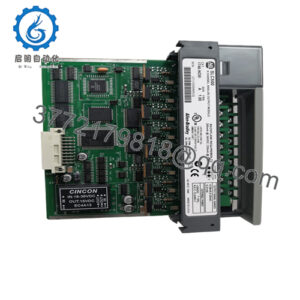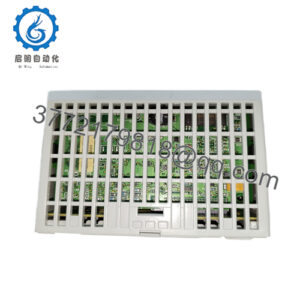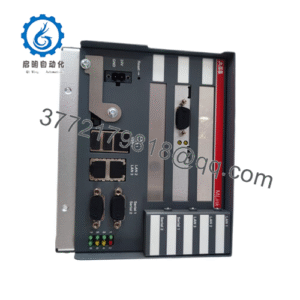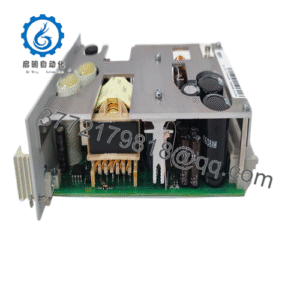Description
Product Model: IPMC7616E-002
Product Brand: Motorola (Emerson)
Product Series: IPMC / IPMC761 / IPMC712 family
Product Features:
- PMC-form interface card offering Ultra-Wide SCSI, parallel I/O, and up to 4 serial ports
- Designed to integrate with VME 5100, 5500, 6100 systems via IPMC (legacy PMC interface) mode
- Provides backward compatibility for older MVME761/712 rear transition modules
- On-board PCI-to-ISA bridge architecture and support for embedded system I/O via PMC connectors
Applications & Industry Context
In many legacy embedded and VME (Versa Module Europa) systems, particularly those in industrial control, defense, or telecommunications, maintaining backward compatibility with older I/O architectures is essential. That’s the niche into which IPMC7616E-002 steps: acting as a bridge card that brings older I/O standards and modules into more modern VME + PMC environments.
You’ll often see IPMC7616E-002 used in systems that need to support legacy rear transition boards like MVME761 or MVME712M in newer VME 5xxx or VME 6100 chassis. With it installed in PMC slot 1, the system can continue to use older I/O wiring and transition modules with limited changes.
For instance, in a control rack upgrade scenario, a facility may wish to retain existing analog and digital wiring via a transition board, while upgrading the system CPU and backplane. Inserting an IPMC7616E-002 can maintain the I/O interface continuity. Similarly, in embedded test rigs, legacy boards relying on SCSI, serial, or parallel interfaces often depend on such bridging modules.
In aerospace, rail, or military embedded systems with long lifecycle demands, modules like IPMC7616E-002 help ensure longevity of existing field wiring and I/O while supporting newer VME hardware. In test and measurement systems, this module can keep legacy peripherals working even when the host hardware is modernized.
Because the embedded industry often faces shelf-life and obsolescence challenges, products like IPMC7616E-002 are valuable in spares inventories—allowing system maintainers to extend usable life of control platforms.
Product Role & System Integration
At its core, IPMC7616E-002 is a PMC (PCI Mezzanine Card) interface module with features to support legacy transition module I/O, bridging functions, and external peripheral connections in embedded systems. It is designed to mount in PMC slot(s) so that it can attach to a host PCI bus, while simultaneously enabling legacy I/O access via the rear transition path.
The card includes a PCI-to-ISA bridge so that older I/O logic expecting ISA-like mapping can function. It provides:
- One single-ended Ultra-Wide SCSI port
- One parallel port (IEEE 1284 / Centronics style)
- Up to four serial ports (combinations of asynchronous/synchronous depending on module)
- The PMC connectors P11–P15 to tie into the host PCI bus and I/O path
In integration, the host VME board (e.g. MVME6100, MVME5500, or MVME5100) can operate in “IPMC mode.” In that mode, the existing MVME761 or MVME712M transition modules (which map rear I/O to system bus) remain usable when the IPMC7616E-002 is in PMC slot 1. The second PMC slot remains available for other PMC I/O.
Thus, the IPMC7616E-002 sits between the PCI side (host) and the legacy I/O wiring path, acting as a compatibility layer. It effectively extends the life of traditional I/O infrastructure in newer embedded environments.
- IPMC7616E-002
Technical Features & Benefits
Let’s highlight the technical capabilities and why this module remains relevant.
Legacy I/O Support via PMC Interface
By providing both the bridge and the I/O paths (SCSI, parallel, serial), IPMC7616E-002 enables older I/O devices to reside in newer systems without rewiring. This is particularly useful in high-availability systems where field wiring costs are prohibitive.
PCI-to-ISA Bridge Architecture
Many legacy I/O logic devices expect ISA bus architecture. The built-in bridge allows that expectation to be met in modern PCI environments. IPMC7616E-002 handles translation and mapping so that legacy drivers or software can continue operating.
Multiple I/O Interfaces
- Ultra-Wide SCSI: Ideal for high-bandwidth block devices or storage subsystems
- Parallel Port: For printers, legacy instrumentation, or control panels
- Up to Four Serial Ports: Mix of synchronous/asynchronous serial channels supports common RS-232/422/485 or synchronous serial links
PMC Form Factor & Compatibility
The card is standard-length, single-wide, standard-height PMC form. It connects via PMC P11–P15 pins to the host PCI bus and I/O lines.
Because it’s a PMC card, mechanical integration into existing PMC-capable embedded platforms is relatively straightforward, reducing redesign work.
Backward Compatibility
As noted, the card is designed to maintain compatibility with older transition boards (MVME761, 712M) when used in proper configuration, preserving wiring and external devices.
Role in IPMC mode
When the host board is configured for IPMC mode, the IPMC7616E-002 becomes a functional component of the system’s I/O plane, unlike purely optional PMC expansions. This makes it more tightly integrated in system architecture.
Flexible Customization Paths
Because the remaining PMC slot(s) remain free, system designers can further extend I/O or add custom modules while preserving legacy support.
In practical terms, the presence of IPMC7616E-002 can dramatically lower the cost and risk of system modernization, because field wiring and existing I/O devices don’t need wholesale replacement.
Technical Specifications Table
| Parameter | Value / Description |
|---|---|
| Module Type | PMC interface / I/O compatibility module |
| Host Interface | PCI (via PMC P11–P15) |
| Bridge Architecture | PCI-to-ISA bridge logic |
| SCSI Interface | 1 × single-ended Ultra-Wide SCSI |
| Parallel Interface | 1 × parallel (IEEE 1284 style) port |
| Serial Ports | Up to 4 ports (mix of async/sync) |
| PMC Form Factor | Standard-length, single-wide, single-height PMC |
| System Modes Supported | IPMC mode (for MVME5100 / VME5xxx / VME6100) |
| Backward Compatibility | Works with MVME761 / MVME712M transition modules |
| Typical Use | Embedded systems, legacy I/O migration, VME platform upgrades |
| Environment | Industrial/embedded use (typical spec not widely published) |
| Manufacturer | Motorola (now part of Emerson) |
Installation & Integration Insights
If you’re planning to use IPMC7616E-002, here are field-proven practices and things to watch out for:
- PMC Slot Placement & Orientation
Install the card in PMC slot 1 when using IPMC mode (especially for compatibility with MVME transition boards). Ensure mechanical alignment and proper edge connector seating. - Host Configuration (IPMC Mode)
Configure the host board (e.g. MVME5100, 5500, 6100) for IPMC mode so that the system routes I/O via the IPMC card rather than expecting traditional PMC-only I/O paths. - Transition Module Wiring
If using MVME761 / 712M rear transition modules, ensure wiring remains intact and properly mapped. The IPMC7616E-002 module maintains that mapping so no changes may be needed—but check continuity and pin mapping after install. - Driver / Software Support
Legacy drivers designed for the I/O devices expect ISA-like behavior. Because the card provides a PCI-to-ISA abstraction, you may need to ensure correct driver assignments, IRQs, or I/O addresses. - Cable and Peripheral Wiring
Use proper cabling for SCSI (terminators, impedance matching), serial (shielded twisted pair), and parallel lines as needed. Check pinouts carefully — the IPMC card may map lines that differ from direct host pinouts. - Testing & Validation
After powering up, verify each interface (SCSI, parallel, serial) by loopback or device communications. Test legacy peripherals to confirm they see proper addresses, interrupts, and data flow. - Monitoring & Diagnostics
Use host software to detect errors, dropped packets, or bus conflicts. Because you are bridging legacy I/O, debugging may require close attention to IRQ, DMA, or memory address overlaps. - Spare Module Strategy
In mission-critical systems, maintain a hot spare IPMC7616E-002 (or equivalently compatible module) pre-tested and ready to swap in, since field wiring changes must be minimized.
Related Modules & Alternatives
Here are some sibling modules or alternative choices to consider:
- IPMC712 / IPMC712E — variant in the same family with slightly different interface pinouts (especially Ethernet/serial differences)
- IPMC761 (original version) — earlier generation of the module used for similar legacy bridging tasks
- PMC-based I/O cards — newer embedded systems may forego legacy bridging and install PMC cards to directly support modern peripherals
- FPGA-based bridging modules — more flexible bridging in custom systems (e.g. PCIe-to-legacy I/O)
- Complete embedded controllers with backward I/O support — as a long-term migration option, replace entire boards rather than add bridging cards
When planning upgrades, assess whether persistence of legacy wiring is worth bridging or whether an upfront rewrite to modern I/O architecture is more cost-effective.

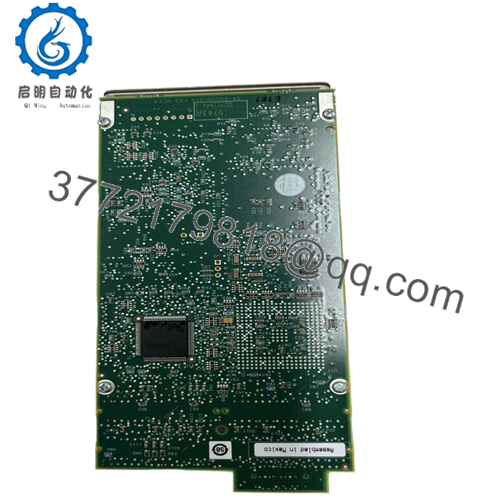
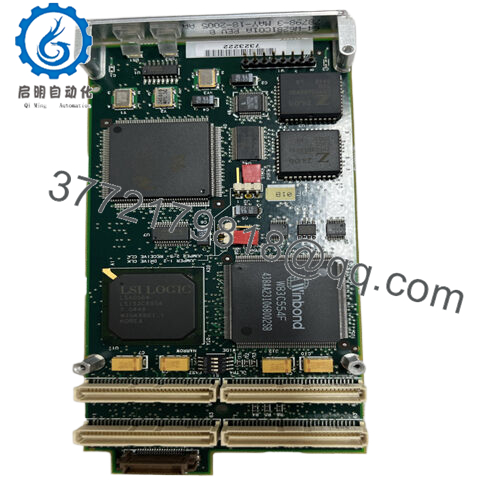
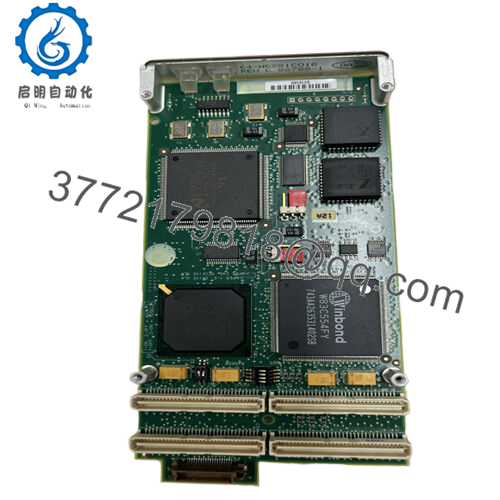
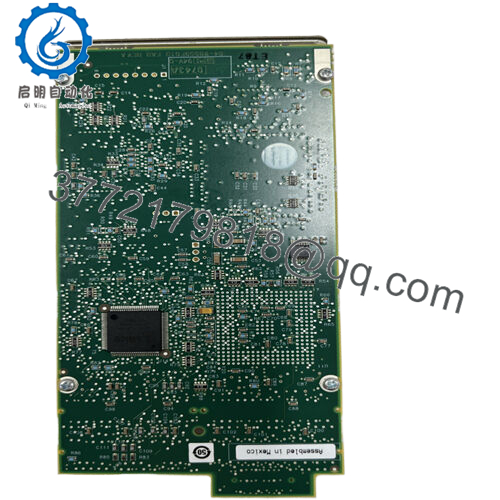
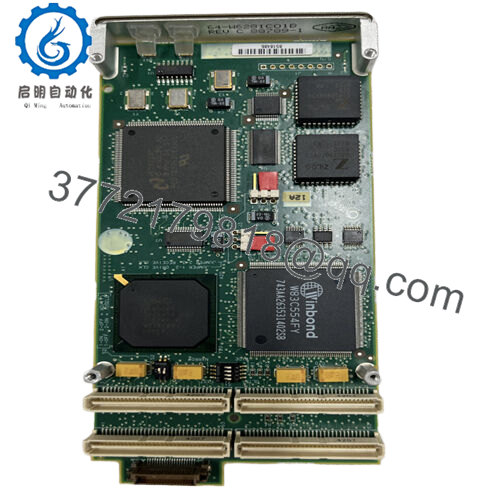
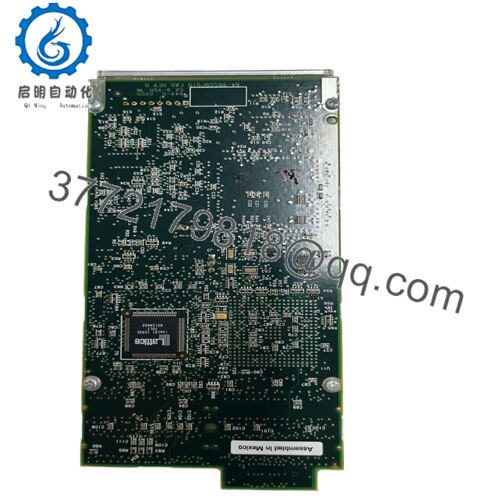
 WhatsApp: +86 16626708626
WhatsApp: +86 16626708626 Email:
Email:  Phone: +86 16626708626
Phone: +86 16626708626